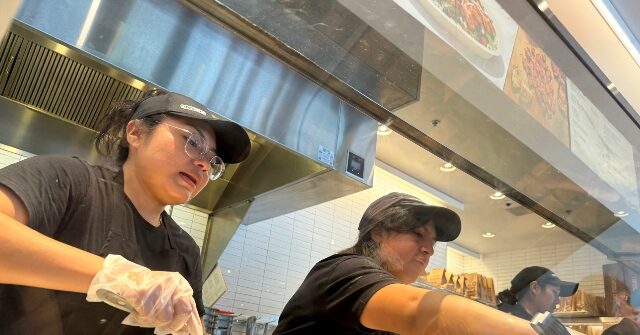In recent developments, Scott Boatwright, the newly appointed CEO of Chipotle, has outlined an ambitious vision to modernize the fast-casual dining chain’s operations, primarily through the integration of robotics in the kitchen. During an interview with Yahoo Finance, Boatwright expressed that the kitchen has remained unchanged for decades and that the time has come to innovate. His strategy involves automating various kitchen processes, positioning Chipotle for future growth. As the company aims to increase its footprint from 3,600 locations to 7,000, it’s crucial for operational efficiency to keep pace with this expansion.
One of the first steps in this modernization effort has been a collaboration with Hyphen, a company focused on automating meal production within the foodservice sector. Together, they have initiated testing of a digital makeline in Southern California. This innovative system allows for quicker meal assembly by utilizing a conveyor belt that automatically dispenses ingredients into either burrito bowls or salads. Boatwright has highlighted the importance of this technology, especially in managing online orders, which currently account for 65% of Chipotle’s bowl and salad sales. The Makeline system is reportedly capable of completing a bowl in just 30 to 60 seconds, thereby freeing staff to concentrate on other tasks.
Additionally, Chipotle is piloting the use of a specialized robot named Autocado, designed to streamline the preparation process for guacamole by peeling and coring avocados. This follows the restaurant’s commitment to using fresh ingredients while aiming for consistency in portion sizes. Other kitchen technologies, like produce slicers, are also making their way into Chipotle’s restaurants to maintain standardized cut sizes across its menu offerings. These technological enhancements aim not only to improve efficiency but also to ensure quality control in food preparation.
However, amidst these technological advancements, Chipotle has faced scrutiny from customers regarding its pricing model. Recent price increases have sparked complaints about perceived portion sizes. In response, Boatwright emphasized that Chipotle’s approach to value differs from that of its competitors. He views value as a function of benefits relative to price and insists that any increase in pricing must be matched with an enhancement in the experience or quality offered to customers. This reflects an overarching objective to maintain customer satisfaction while navigating the complexities of operational costs and competitive pricing.
Boatwright’s modernization initiative comes at a pivotal time for Chipotle as the restaurant industry continues to evolve rapidly. The adoption of automation not only signifies a shift towards greater efficiency but also aligns with broader trends in technology-driven foodservice. As consumers increasingly expect speed and convenience, leveraging automation could give Chipotle a competitive edge, especially during peak hours or high-demand periods. By rethinking kitchen processes and integrating cutting-edge technology, Chipotle aims to meet customer expectations while expanding its market presence.
In conclusion, under Scott Boatwright’s leadership, Chipotle is moving towards a more automated future, with the potential to transform how food is prepared and served in its restaurants. As the chain plans to expand significantly, the focus on efficiency through technology could be a game changer in responding to consumer demands and enhancing operational productivity. While the company navigates challenges related to pricing and customer satisfaction, its commitment to innovation may ultimately redefine what customers expect from fast-casual dining experiences. As testing of these new technologies continues, the successful integration of automation could position Chipotle favorably in a competitive landscape, allowing it to grow while keeping pace with evolving consumer preferences.

